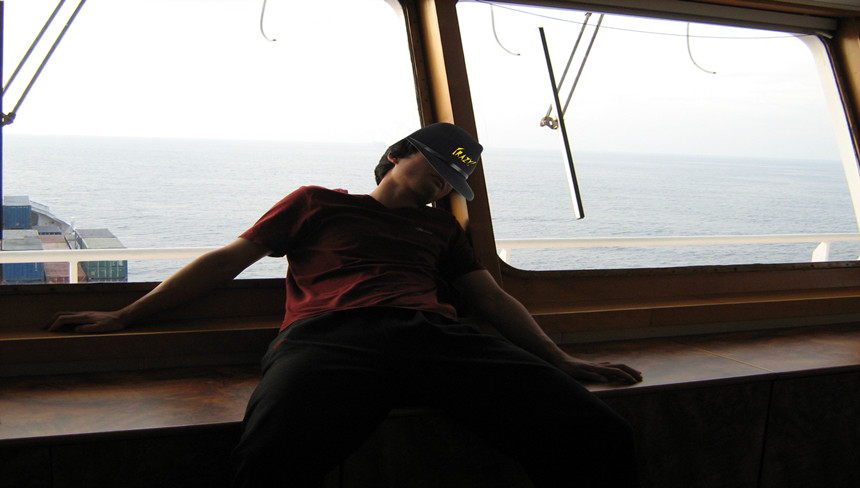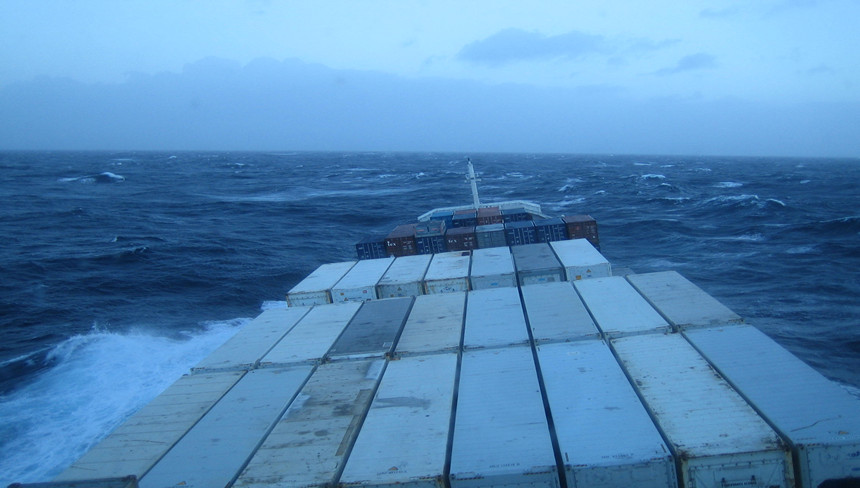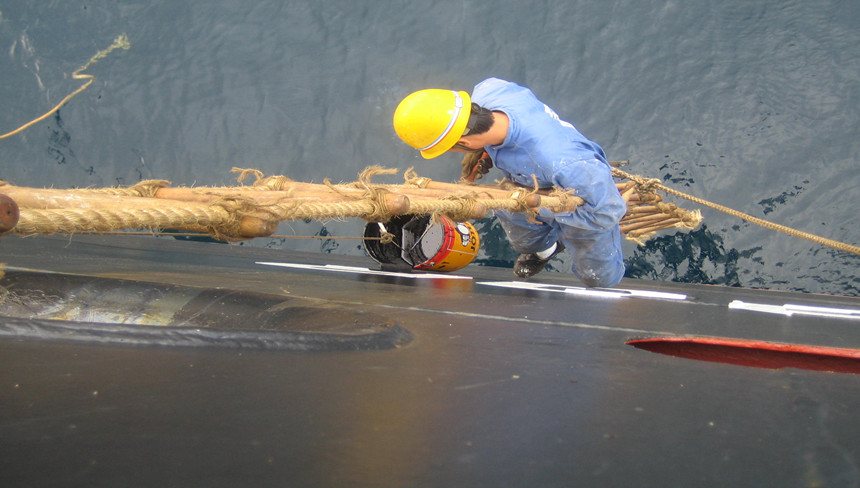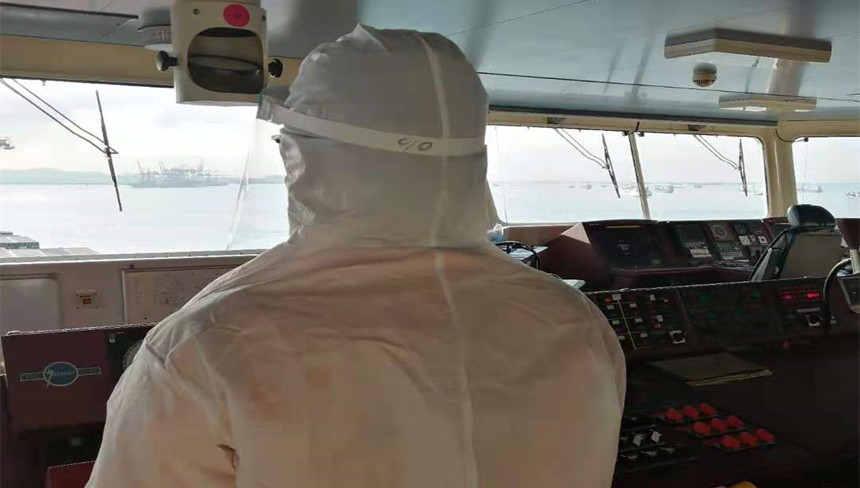LP 24/2021 Seafarer Fatigue: A Key Risk Factor in Maritime Claims

Fatigue is experienced by seafarers when they are under harsh environment, irregular hours, or extended periods of anxiety. As highlighted by the Maritime Safety Committee of the IMO, fatigue is a hazard because it may affect a seafarer’s ability to do their job effectively and safely. Industry experts are sounding the alarm with frequent occurrence of collision or grounding incidents. Neglects of masters and crews in navigation have been pinned down to poor fatigue management in some maritime investigations, owners and managers are therefore left with a heavy responsibility.
I. Reasons for seafarer fatigue
- Reduced manning level: the manning level is significantly reduced with enhanced automation of ships over the last 3 decades, yet key operations on board are still very demanding.
- 6/6 shift pattern: officers on duty are normally subject to high biological pressure to sleep within a 6/6 shift pattern during cargo operations at ports.
- Loss of sleep or poor sleep quality: seafarers may suffer from loss of sleep when affected by factors like severe sea conditions, noises, body clock disorder, inadequate food, or distraction of entertaining games and videos.
- Faster port turnarounds: with modern port facilities promoting the efficiency of cargo operations, seafarers are not allowed with sufficient time to recuperate.
- Increased inspections: seafarers are often preoccupied with external inspections by port state or flag state administrations, trade organizations, the company, or the charterer during port calls.
- Anxiety and stress: the concentration and pressure in navigation, discrimination and bullies, piracy and stowaways, the COVID-19 outbreak, lack of connection with family may all be harmful to the mental wellbeing of a seafarer.

Ship rolling at the Bay of Biscay
II. International conventions and legal basis
Current fatigue management provisions either in internal documents or external requirements are primarily based on the following conventions.
- SOLAS Convention
Regulation 14, Chapter V Safety of Navigation of the convention has made specific requirements on ship’s manning that contracting governments shall undertake each for its national ships to maintain, or adopt measures for the purpose of ensuring that, from the point of view of safety of life at sea, all ships are sufficiently or efficiently manned, in reference to Resolution A.1047(27) which contains the Principles of Minimum Safe Manning.
Chapter IX Management for the safe operation of ships provides that companies shall implement a safety management system in compliance with the International Safety Management Code and follow international standards and flag administration policies on all ships in terms of ship operation and environment protection.
Although fatigue management is not made mandatory in the convention, the issue of fatigue is always addressed in established SMS under the ISM Code. The convention which is consistent with the IMO’s safety idea has highlighted the importance of minimum safe manning. It is not uncommon in certain cases that the conclusion of ship unseaworthiness can be drawn from the crew’s incompetence, which is further a result of undue fatigue management.
- STCW
The convention specifically provides in Section A-VIII/1 Fitness for duty that administrations, to prevent fatigue, should consider the minimum rest periods for officers in charge of a watch and seafarers with designated safety or pollution prevention duties. In making watch arrangements, crew members who are assigned as members of the watch shall not be affected by fatigue and shall be recuperated and fit for duty at the commencement of the voyage.
- MLC 2006
Regulation 2.3 of the convention is established to ensure that seafarers have regulated hours of work or hours of rest. It provides that:
“3. Each Member acknowledges that the normal working hours’ standard for seafarers, like that for other workers, shall be based on an eight-hour day with one day of rest per week and rest on public holidays. However, this shall not prevent the Member from having procedures to authorize or register a collective agreement which determines seafarers’ normal working hours on a basis no less favourable than this standard."
- In determining the national standards, each Member shall take account of the danger posed by the fatigue of seafarers, especially those whose duties involve navigational safety and the safe and secure operation of the ship.
- The limits on hours of work or rest shall be as follows:
(a) maximum hours of work shall not exceed:
(i) 14 hours in any 24-hour period; and
(ii) 72 hours in any seven-day period; or
(b) minimum hours of rest shall not be less than:
(i) ten hours in any 24-hour period; and
(ii) 77 hours in any seven-day period.
- Hours of rest may be divided into no more than two periods, one of which shall be at least six hours in length, and the interval between consecutive periods of rest shall not exceed 14 hours.

Outboard operation at an anchorage
III. False records keeping on board
Records of hours of work and rest are the main evidence for seafarer fatigue. The MLC provides that each Member state shall require that records of seafarers’ daily hours of work or rest be maintained to allow monitoring of compliance of the standard. The records shall be in a standardised format established by the competent authority taking into account any available guidelines of the ILO or shall be in any standard format prepared by the Organisation. They shall be in the working languages or in English. The seafarers shall receive a copy of the records pertaining to them which shall be endorsed by the master, or a person authorised by the master and by the seafarers.
In accordance with these requirements, some masters have required the chief officer and the chief engineer to keep the records of work and rest hours for seafarers in their respective department. Some companies have designed forms with calculators and reminders to assist accurate record-keeping and prevent incompliance.
However, with increased workload problems are frequently seen in practice where false information is provided to fool around internal and external inspections. It’s not difficult to spot inconsistency if such records are compared with the logbooks kept on board. As a matter of fact, seafarers inevitably work overtime in overriding operational conditions or in the case of an emergency as a result of the reduced manning level in recent years.

Watch on the bridge during the pandemic
IV. Maritime investigations on seafarer fatigue
Maritime investigators generally focus on different aspects of seafarers’ fatigue from external inspection officers. Apart from the regular checks on watch arrangement and work/rest records, maritime investigators and lawyers would examine whether there’s any inconsistency between the records and other documents kept on board, such as deck logs, engine logs, oil record books, garbage record books, ballast water records, records of deck watchkeeping, records of arrival/departure and sounding tables. Ships are likely to be held liable for providing false evidence in maritime investigations if the discrepancies found cannot be justified.
In addition, maritime investigators and lawyers would ask questions about fatigue management, especially in detail the work/rest arrangements of the crew members involved. Normally, without rigorous logic thinking or experience in countering lawyer inquiries, the crew members may answer ambiguously that they have experienced fatigue or worked overtime at some point. These answers may be used against owners as evidence for false records keeping, no matter they are based on facts or on personal feelings.
Reports on internal and external audits, FSC and PSC inspection reports, reports on inspections carried out by industry organisations and companies, and the master’s report on SMS are also to be examined in maritime investigations. If deficiencies or discrepancies in relation to the crew’s work/rest periods are found, the company may be deemed to have failed to act on fatigue management or it did not take any measures to manage the problem. Owners are then likely to lose their advantages in exempting liabilities under applicable laws.

Sampling in a maritime investigation
V. Advice to Members
- The Association has found in many recent cases that crew fatigue management, along with drug and alcohol control, has become the top three issues to be investigated in a maritime incident. Once fatigue or drug and alcohol abuse is found related to the crew involved, it would be hard to predict what the consequence can be for the owners.
- The heavy workload caused by the 6/6 shift pattern has been a great concern in PSC inspections. A reasonable manning level should be maintained, or a 4-hour rotation should be adopted to reduce the intensity of work for watchkeeping officers during berthing and unberthing.
- The company should urge the master to keep an accurate record of the crew’s work/rest time. The record should be consistent with other documents or at least without any obvious conflicts.
- The master should be capable of foreseeing potential heavy workload and arrange rest periods in advance to allow seafarers and duty officers to recuperate.
- Do not make false records even if requirements on work/rest hours are inevitably violated. Report truthfully to the company and make rectifications according to the SMS.
- The company should minimise the periods for onboard inspections when the ship is berthed, or have the supply of materials, spare parts, and groceries taken at a certain time period to give seafarers sufficient rest.
- Effective fatigue management is by no means only the responsibility of the company and the master, and it requires the contribution of the entire industry. The abilities of seafarers to repatriate, travel, and to obtain medical treatment have been sharply curtailed especially since the COVID-19 outbreak, leading to increased frustration and weary of seafarers. Again, the Association hopes to call on the industry to provide seafarers with the convenience of normal activities under the Maritime Labour Convention, and a fair opportunity to work, repatriate and get treatment unimpeded.
For more information, please contact Managers of the Association.
